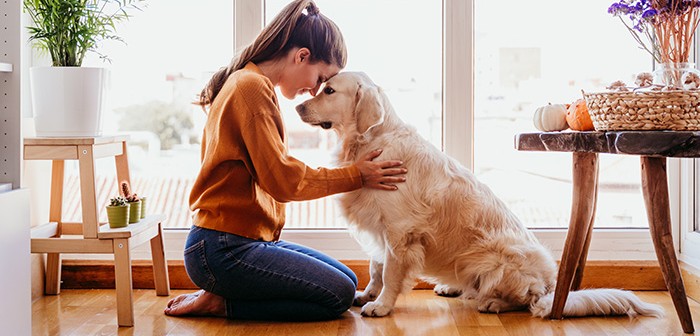The National Office of Animal Health (NOAH) has launched a campaign ‘Securing the Right to Rent with Pets: Making One Health Housing a Reality’, to help improve access to pets for people living in rented or socially owned housing.
This includes encouraging wider use of the Government’s recommended Model Tenancy Agreement and introducing new pet-friendly policies to protect tenants and property owners to promote responsible pet ownership.
The UK is facing a rising loneliness crisis, which has been exacerbated by the COVID-19 pandemic. Research from Campaign to End Loneliness found that 25 million people in England feel often, sometimes or always lonely – and the reduced ability during the lockdowns for people to socially interact or leave home for long periods of time has undoubtedly resulted in an increase in feelings of loneliness or social isolation in the population.
NOAH’s own study found that 67% people believe having a pet provides companionship and friendship and 52% believe that pets help those who may be feeling lonely.
Despite the significant and clear benefits, owning a pet in rented accommodation remains very difficult. According to rental start-up Home Made, only 2.8% of property owners in the UK advertise homes as suitable for tenants with pets, while Tenants Voice reported that 78% of pet owners report experiencing problems finding a suitable rental property.
Dawn Howard, NOAH’s chief executive, said: “We understand that renting with pets comes with a level of concern for landlords, whether this is perceived fear of damage to the property or badly behaved pets – however, we truly believe that widening access to pets will actually bring benefits to landlords that outweigh these often-inflated fears.
“For example, the RSPCA found tenants who are given permission to look after a pet in their rental property were likely to live in that property for twice as long compared to other tenants – creating long-term, secure tenants for landlords. Allowing responsibly kept pets also increases the pool of prospective renters for properties, meaning landlords are far less likely to struggle to find tenants, and will in turn have a more secure stream of income.
“It is these very benefits that we are keen to maximise in collaboration with landlords and housing associations, whilst ensuring we tackle any problems that could arise from pets in rented properties.”


